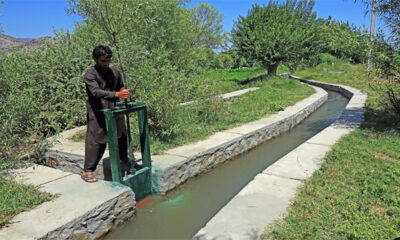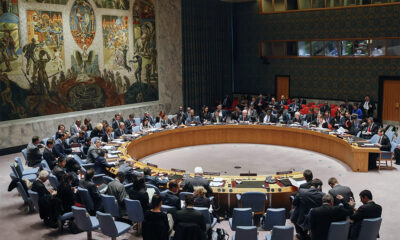Latest News
Afghan army collapse ‘took us all by surprise,’ US defense secretary says
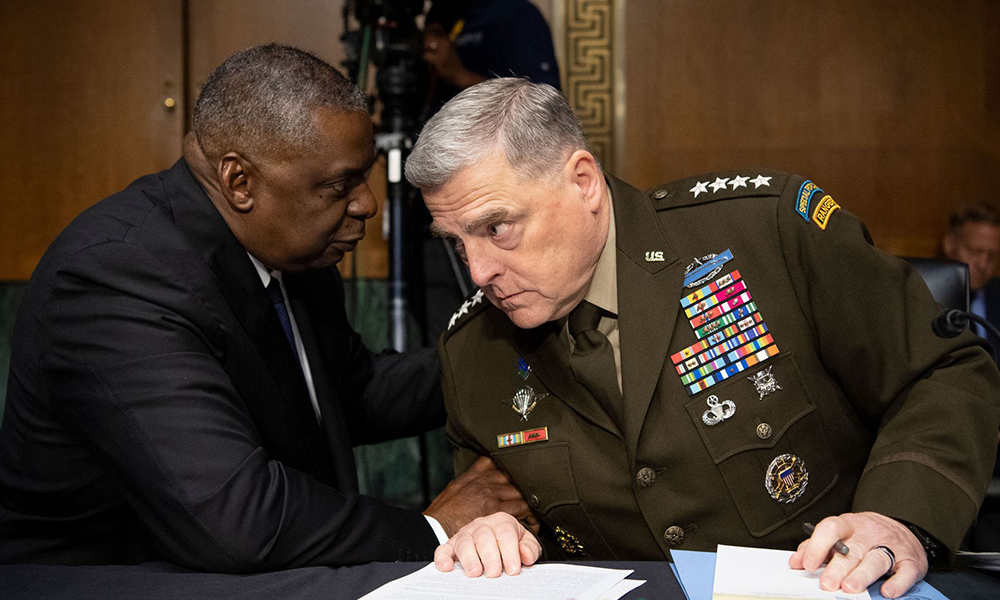
U.S. Defense Secretary Lloyd Austin told Congress on Tuesday that the Afghan army’s sudden collapse caught the Pentagon “by surprise,” as military leaders confronted a contentious Senate hearing about how and why America lost its longest war.
Republican lawmakers accused President Joe Biden of lying about recommendations from his military that some troops should be kept in Afghanistan. Even Biden’s Democrats expressed frustration with a chaotic withdrawal that left U.S. troops dead and American citizens behind.
General Mark Milley, chairman of the Joint Chiefs of Staff, and General Frank McKenzie of U.S. Central Command also acknowledged being caught off-guard by the speed of the Taliban takeover and collapse of the U.S.-backed government in Kabul.
It was their first public congressional testimony since the Islamic Emirate of Afghanistan (IEA) won the war in August.
“The fact that the Afghan army we and our partners trained simply melted away – in many cases without firing a shot – took us all by surprise,” Austin, told the Senate Armed Services Committee.
“It would be dishonest to claim otherwise.”
McKenzie and Milley testified that they had believed it would have been best to keep a minimum of 2,500 troops in the country. In an August interview Biden denied his commanders had recommended that, saying: “No. No one said that to me that I can recall.”
Milley refused to be drawn on whether Biden had lied when pressed by Republican Senator Dan Sullivan
“I’m not going to categorize a statement of the President of the United States,” Milley said.
He said that the U.S. missed warning signs about the coming failure of “leadership and will” in its Afghan allies that ultimately led to their collapse.
Republican Senator Joni Ernst said Biden’s decision to keep former President Donald Trump’s unconditional withdrawal agreement with the IEA had squandered U.S. sacrifices for what he thought would be “a cheap political victory.”
“The loss of our service members, and abandonment of Americans and Afghan allies last month was an unforced, disgraceful humiliation that didn’t have to happen,” Ernst said.
Senator James Inhofe, the panel’s top Republican, described it as a “horror of the president’s own making.”
White House spokesperson Jen Psaki said Biden’s military experts had provided “a range of viewpoints” about Afghanistan, and that Biden believed leaving troops there would “mean war with the Taliban (IEA).”
Milley, the top U.S. military officer, noted military warnings since late 2020 that an accelerated, unconditional withdrawal could precipitate the collapse of the Afghan military and government.
“That was a year ago. My assessment remained consistent throughout,” Milley said.
Austin, Milley and senators – many of whom oversaw the war effort for years – seemed full of questions about what went wrong, citing failures to appreciate the impact of corruption and damaged morale in the ranks.
“There’s a series of strategic lessons to be learned,” Milley said.
Democrats faulted Republicans for blaming Biden, who has been president since January, for everything that went wrong during the 20 years U.S. troops have been in Afghanistan, including under Trump.
“Anyone who says the last few months were a failure, but everything before that was great, clearly hasn’t been paying attention,” Democratic Senator Elizabeth Warren said.
Austin praised U.S. personnel who helped airlift 124,000 people out of the country.
But Milley acknowledged that while the evacuation effort was a logistical accomplishment, the withdrawal was a “strategic defeat”.
He warned that the IEA has not broken ties with al Qaeda.
A reconstituted al Qaeda in Afghanistan with aspirations to attack the United States was “a very real possibility” – perhaps in as little as a year, he said.
Latest News
2023 marred by ‘tremendous challenges’ for Afghanistan
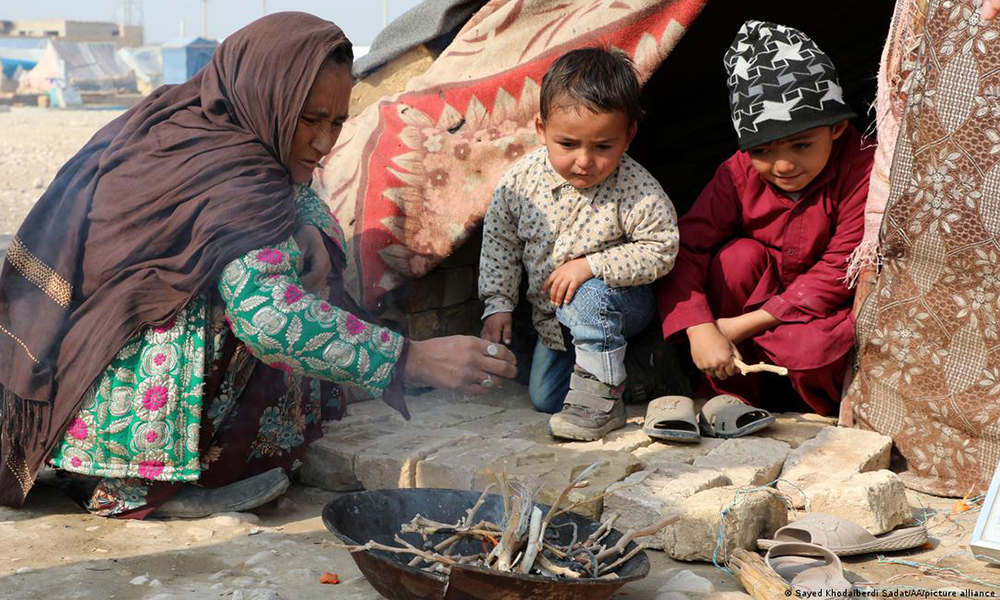
Last year, 2023, was a year of “tremendous challenges” for the people of Afghanistan, but it was also a year marked by resilience and determination, the Deputy Special Representative of the Secretary-General, Resident and Humanitarian Coordinator, Indrika Ratwatte, said in the UN’s annual report on Afghanistan that was published this week.
Ratwatte said: “In the face of adversity and multiple concurrent shocks, the people of Afghanistan have demonstrated remarkable courage and strength.”
Afghans now mention access to food as their most pressing need, he said adding that “unable to pay for or produce basic sustenance, millions face hunger and malnutrition.”
In 2024, an estimated 15.8 million people will experience crisis and emergency levels of food insecurity.
The majority of the population is unable to procure basic needs such as healthcare, food, livelihoods, and housing, the report stated.
The UN found that the country also remains vulnerable to climate change.
Following the worst drought in three decades, emerging El Niño conditions now threaten a new cycle of flooding and crop pests. In this context, lifesaving humanitarian aid has been crucial in preventing the collapse of the social fabric. It has also served to underpin the stability of the economy. Despite growing humanitarian needs, relevant funding cuts have forced humanitarian actors to prioritize the most vulnerable further, the report stated.
A Gallup poll found that 95 percent of the population consider themselves to be suffering. In addition to living in poverty, the average life expectancy in Afghanistan has been falling for the past five years.
The Herat earthquakes and unprecedented large-scale returns of refugees from neighbouring countries, including Pakistan and Iran, have shown the disruptive impact of recurrent shocks and underscored the need for sustained international engagement and support, the UN stated.
“As we embark on the next chapter, in 2024, it is imperative that we remain steadfast in our commitment to the principles of human rights, gender equality, and women’s Empowerment,” Ratwatte said.
“We will continue to include women as key partners in our work, to provide assistance ‘by women, for women’, and to tirelessly work for equal access to education in line with the demands we hear from Afghans in all areas of the country,” he said.
However, from an economic point of view, Afghanistan’s economy appears to be stabilizing at a low equilibrium level following a period of significant contraction since 2021.
The UN said in the report that growth barriers include severely restricted operations in the banking sector (including microfinance institutions), trade disruptions, and institutional issues hindering service delivery, including in the private sector.
“The sudden cessation of a significant amount of international aid and grants, which had accounted for 40 percent of the country’s Gross Domestic Product (GDP), along with a freeze on international reserves amounting to about US$9 billion and the imposition of international sanctions, caused a severe balance of payments, banking and payment systems crisis.
“Notably, financial restrictions have removed liquidity from the banking system,” the report stated.
Despite the crisis and a period of devaluation towards the end of the year, the AFN is 20 percent stronger than it was in 2021 due to currency export controls, UN cash shipments of US dollars into Afghanistan, and personalremittances.
Imports continued to surpass exports through 2023 and increased as the economy contracted.
“This appears to be a paradox: the currency appreciated while the trade deficit widened, suggesting that there might be other unidentified sources of financing besides US dollar cash shipments and remittances to support the account deficits,” the report read.
The UN also said that with its partners, it will work to initiate a dialogue with the Islamic Emirate on adjustments to regulatory frameworks and sustained public service delivery with the aim of creating a long-term and sustainable pathway to reduce aid dependency and put Afghanistan back on a path towards development
“In this regard, we reiterate our offer to the DFA for a dialogue and will work jointly with international partners, donors, and Afghans on how such engagement can be structured in a most productive way.”
Latest News
Beijing hosts Afghan delegation for talks on a wide range of issues

The third meeting of the China-Afghanistan working-level liaison mechanism on humanitarian assistance and economic reconstruction was held in Beijing this week where in-depth talks were held on numerous issues relating to Afghanistan.
Liu Jinson, Director of the Asian Department of China’s Ministry of Foreign Affairs, and Jalali, Director of the Third Political Department of the Ministry of Foreign Affairs of Afghanistan, co-chaired the Beijing meeting.
Also in attendance were representatives from various Chinese commissions, government departments, international aid organizations, as well as the Afghan Ministry of Commerce and Industry, the Ministry of Mines and Petroleum, the Ministry of Disaster Management, and the Ministry of Refugee Affairs.
Quoting an Afghan proverb, Liu said at the meeting that “friends come and go, but neighbors always remain.”
He pointed out that since 2021, China has implemented a diplomatic concept of amity, sincerity, mutual benefit and inclusiveness that was proposed by President Xi Jinping in terms of Beijing’s dealings with Afghanistan.
China has also adhered to a friendly policy towards all Afghan people, and adhered to the principle of respect for the country’s independence, sovereignty and territorial integrity.
He also said that during the different regimes in Afghanistan, China has always provided support and assistance for Afghanistan’s peaceful reconstruction and economic development.
The Afghan delegation meanwhile stated that the Islamic Emirate attaches great importance to developing relations with China, and thanked China for taking the lead in sending a new ambassador to Afghanistan and accepting the appointment of an ambassador to China.
The Islamic Emirate said Afghanistan is willing to deepen friendly relations with China, maintain traditional friendship, and will, as always, support China in safeguarding its core interests and achieving national reunification.
The two sides agreed in the meeting that Afghanistan is currently facing multiple challenges such as floods, droughts, and refugee resettlement, among other issues.
They also noted that the freezing of Afghanistan’s foreign assets by the United States has “aggravated the suffering of the Afghan people.”
The IEA stated however that it was “very grateful to China for its humanitarian assistance over the years and hopes to continue to receive help from China in refugee resettlement, disaster prevention and mitigation, improvement of medical and health conditions, and treatment of children with congenital heart disease.”
On the Belt and Road initiative, the IEA delegation said Afghanistan is deeply satisfied with the progress in practical cooperation between the two countries. They also said Afghanistan is willing to learn from China’s experience in modernization and development, and hopes that China will help Afghanistan cultivate more professional talents.
China meanwhile urged the international community to step up humanitarian assistance to Afghanistan, and said Beijing hopes the IEA will “actively respond to some of the international community’s reasonable concerns about Afghanistan’s inclusive governance.”
Liu in turn acknowledged the IEA’s efforts to promote economic reconstruction and said bilateral trade volume between China and Afghanistan reached US$1.33 billion last year, a record high and a year-on-year increase of 125.4%.
The Islamic Emirate meanwhile said in posts on X that the issue of investment opportunities in Afghanistan was widely discussed and both sides welcomed moves to pave the way for the export of pomegranates.
“Also, both sides talked about the latest developments in increasing the level of oil extraction in Afghanistan and starting the extraction of Logar’s Mes Aynak mine and it was emphasized that plans should be considered to speed things up,” the IEA stated.
“The Afghan side welcomed the capacity building training programs of civil servants in many ministries and agencies of the Afghan government with the support of China. In addition, the Chinese side promised to expand the range of scholarships to Afghan students according to the needs of Afghanistan,” the IEA stated.
Latest News
UN builds 470km of water canals in Afghanistan in past year
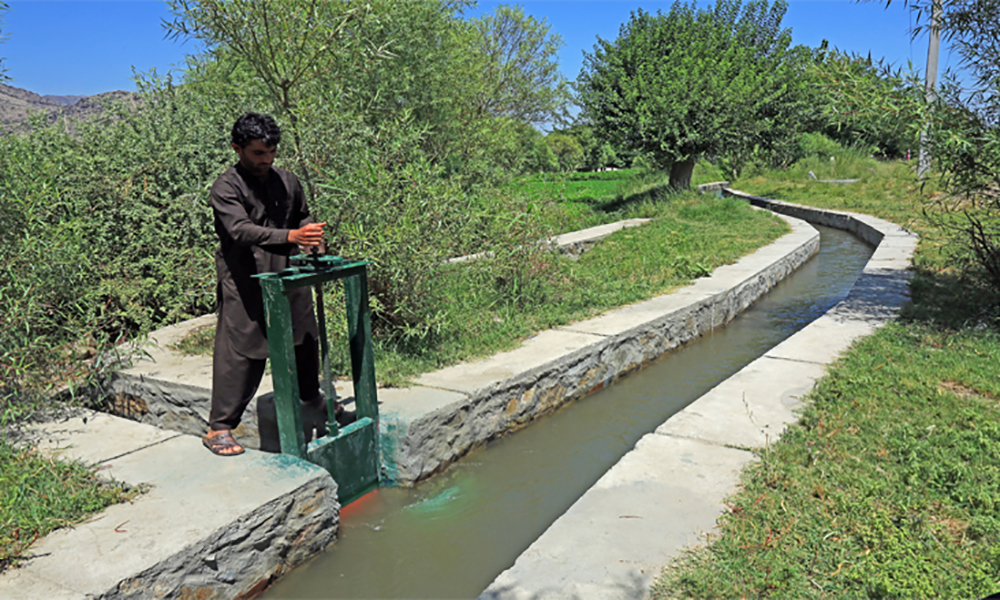
The United Nations has built 470 kilometers of much needed water canals in Afghanistan in the past year in cooperation with local communities, the World Food Program (WFP) confirmed.
WFP in Afghanistan said in a post on X, formerly Twitter, on Wednesday that the canals were built in order to provide access to water to more people across the country.
The agency said the people “in Afghanistan cannot continue their lives without access to water,” adding that the canals help farmers irrigate crops, which allows them to feed their families and sell surplus produce.
This comes after years of drought across the country. However, in the past few months, good rain has been recorded which will hopefully result in good harvests this year.
-

 Sport4 days ago
Sport4 days agoACL draw to be broadcast live on ATN channels
-

 Regional4 days ago
Regional4 days agoIRGC chief warns of harsher response if Israel attacks Iran
-

 Regional5 days ago
Regional5 days agoIran launches retaliatory attack on Israel with hundreds of drones, missiles
-

 Sport3 days ago
Sport3 days agoACL fever grows as fixtures finalized
-
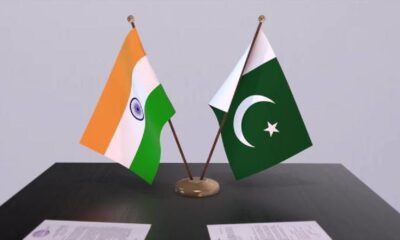
 Latest News4 days ago
Latest News4 days agoContact group on Afghanistan hits roadblock over Pakistan’s gripe with India
-

 Sport4 days ago
Sport4 days agoHetmyer powers Rajasthan win in low-scoring IPL thriller
-
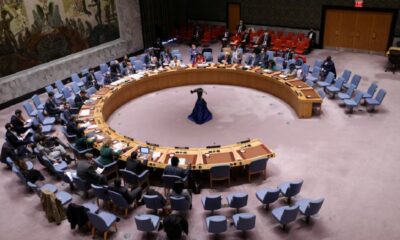
 World4 days ago
World4 days agoUN Security Council to meet Sunday on Iran attack
-

 World3 days ago
World3 days agoUS will not take part in any Israeli retaliatory action against Iran








